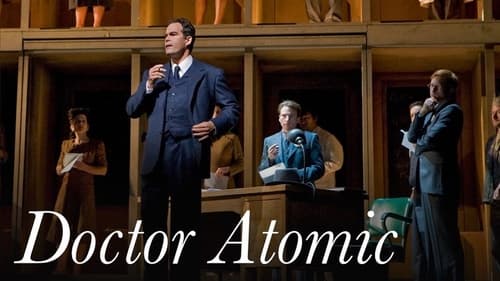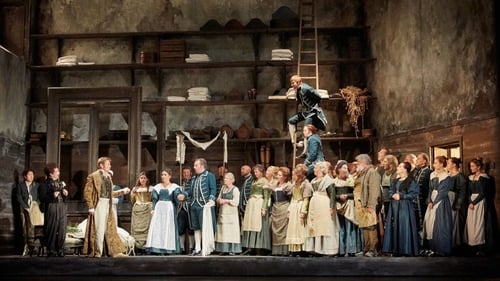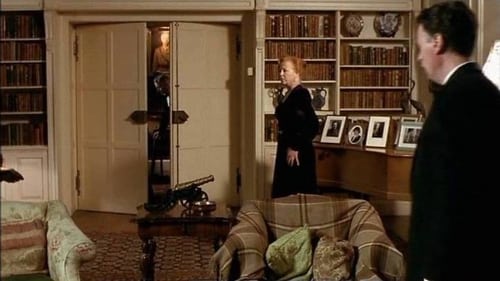Gerald Finley
Nacimiento : 1960-01-30, Montreal, Quebec, Canada
Historia
Grammy-award winning Canadian bass-baritone Gerald Finley is a leading singer and dramatic interpreter of his generation, with acclaimed performances at the world’s major opera and concert venues and award-winning recordings on CD and DVD with major labels in a wide variety of repertoire. Mr Finley’s career is devoted to the wide range of vocal art, encompassing opera, orchestral and song, collaborating with the greatest orchestras and conductors of our time.
He began with the baritone roles of Mozart; his Don Giovanni and Count in Le nozze di Figaro have been heard live throughout the world and on DVD. Recent signature roles include Guillaume Tell, J. Robert Oppenheimer in John Adam’s Dr. Atomic, and Jaufré Rudel in Saariaho’s L’amour de loin. He created Harry Heegan in Mark Anthony Turnage’s The Silver Tassie.
(From: http://www.geraldfinley.com)

Antonio Pappano conducts a stellar cast of singers in favourite arias, duets and choruses from operas by Rossini, Donizetti and Puccini, along with the thrilling finale of Bizet’s Carmen. Italian baritone Vito Priante offers haircuts as the Barber of Seville, and Lisette Oropesa dazzles with her flawless soprano coloratura before being joined by American tenor Charles Castronovo for some heartwarming comedy in Donizetti’s The Elixir of Love. Mezzo-soprano Aigul Akhmetshina starts out as Cinderella celebrating her good fortune and then magically transforms into femme fatale Carmen for the tragic finale of Bizet’s great opera. The drama increases with Kristine Opolais singing the role of doomed diva Tosca, with Canadian baritone Gerald Finley joining her for the searing Te Deum from Puccini’s masterpiece. The chorus and orchestra of the Royal Opera House are arrayed throughout the stalls of the fabulous auditorium at Covent Garden to maintain social distancing. Presented by Katie Derham.

Baritone
Live from Covent Garden will celebrate ballet and opera in programmes of dance and music, curated by artistic directors of the Royal Opera House: Antonio Pappano, Music Director of The Royal Opera, Oliver Mears, Director of Opera, and Kevin O’Hare, Director of The Royal Ballet.

Jago
Like an outcry the elemental force of the orchestra shatters the silence, the storm on the coast of Cyprus rages incessantly. The wind whips, lightening cuts through the roaring skies. As Othello, the great general and commander becomes entangled in Iago's web of machinations; as the calamitous seed of jealousy germinates and Othello's love for his wife Desdemona begins to decay, even on their wedding day; as Desdemona, "nevertheless insists, although she senses or feels that this harm comes her way, and that Othello in his jealousy is really capable of killing her" (Amélie Niermeyer) – with his Otello Verdi created an operatic drama, the likes of which had never before been so tight, so direct, so intensive and so beautiful, and still today unmatched.

Baron Scarpia
The painter Mario Cavaradossi helps a fugitive escape – and so attracts the attention of Scarpia, the sadistic Chief of Police. Scarpia captures Cavaradossi and has him tortured within earshot of his lover, the singer Tosca. Scarpia sentences Cavaradossi to death – but promises Tosca that her lover can be saved if she gives herself to Scarpia. Tosca consents but as soon as the order has been given kills Scarpia. Scarpia’s menace continues even in death: betrayed by a double-cross, Cavaradossi dies and Tosca leaps to her death.

Guillaume Tell
New production. Recorded live at Royal Opera House, July, 05, 2015.

Amfortas
A young man ignorant of everything, including his own name, arrives at the Kingdom of the Holy Grail. Is he the ‘pure fool, enlightened by compassion’, who, it has been prophesied, will purify the kingdom?

Don Alfonso

Hans Sachs
In “a Wagner staging to treasure” (The Sunday Telegraph), the 2011 Glyndebourne Festival brings to life the legendary German composer’s Die Meistersinger von Nürnberg. Staged by David McVicar, the production features an all-star cast of leads supported by the London Philharmonic Orchestra under the direction of Vladimir Jurowski.

Himself
With this performance of the Missa solemnis Nikolaus Harnoncourt, Honorary Guest Conductor of the Royal Concertgebouw Orchestra, once more attained the status of a living legend, due mostly to his wide-ranging expertise of music from the Baroque and Classical era. The highly acclaimed soloists are Marlis Petersen (Soprano), twice the singer of the year by the renowned Opernwelt magazine, Elisabeth Kulman (Alto), Werner Güra (Tenor), winner of the BBC Music Magazine Award for the best vocal performance, and Gerald Finley (Bass), Grammy-Awardwinner for the best opera recording. They are accompanied by the famous Netherlands Radio Choir.

Don Giovanni
Mozart's second collaboration with the mercurial librettist Lorenzo da Ponte is among the very blackest of black comedies. Glyndebourne welcomes back the winning team of director Jonathan Kent and designer Paul Brown, while the music is conducted by Vladimir Jurowski. In the title role, the bass-baritone Gerald Finley, joined by Luca Pisaroni, Kate Royal and the young Russian soprano Anna Samuil.

J. Robert Oppenheimer
John Adams’s mesmerizing score, in the powerful production of Penny Woolcock, tells the story of one of the pivotal moments in human history—the creation of the atomic bomb. Conducted by Alan Gilbert in his Met debut, this gripping opera presents the human face of the scientists, military men, and others who were involved in the project, as they wrestled with the implications of their work. Baritone Gerald Finley gives a powerful star turn in the title role as the brilliant J. Robert Oppenheimer.

J. Robert Oppenheimer
The European premiere of the opera by the contemporary American composer John Adams, with libretto by Peter Sellars, in a co-production of the San Francisco Opera (where the work premiered), the Lyric Opera of Chicago, and De Nederlandse Opera. The plot focuses on the great stress and anxiety experienced by those at Los Alamos while the test of the first atomic bomb (the "Trinity" test) was being prepared.

Comte Almaviva
David McVicar's spellbinding production of LE NOZZE DI FIGARO is set in 1830s post-revolution France, where the inexorable unravelling of an old order has produced acute feelings of loss. In the relationship between Finley's suave, dashingly self-absorbed Count and Röschmann's passionately dignified Countess, which lies at the tragic heart of the opera, the sexy ease between a feisty Figaro (Erwin Schrott) and a sassy Susanna (Miah Persson) is starkly absent, the tenacious spark between Marcellina (Graciela Araya) and Bartolo (Jonathan Veira) suggesting what might be rekindled. The production is superbly complemented by the beauty of Paule Constable's lighting and Tanya McCallin's evocative sets. Antonio Pappano conducts (and accompanies the recitatives) with invigorating wit and emotional depth.

Jaufre Rudel
This is the 2004 version of Kaija Saariaho's opera performed by the Finnish National Opera and conducted by Esa-Pekka Salonen.

Owen Wingrave
Margaret Williams directs this 2001 production of adaptation of Benjamin Britten's television opera based on a short story by Henry James. Performers featured include Gerald Finley, Peter Savidge and Josephine Barstow. The conductor is Kent Nagano. As pertinent now as then, OWEN WINGRAVE was composed by Benjamin Britten at the height of the Vietnam War. The opera poses the question: Is pacifism an act of cowardice? Or rather a desire to escape from the spiral of war and create world peace? To what extent do we determine our own futures? Should we let past events inform the decisions we make? Britten’s characters grapple with timeless issues in this gripping psychodrama.

Figaro
Live from Glyndebourne 1994. The first production to be filmed Live in Glyndebourne´s new opera house May 1994. The Marriage of Figaro is a continuation of the plot of The Barber of Seville several years later, and recounts a single “day of madness” in the palace of the Count Almaviva near Seville, Spain. Rosina is now the Countess; Dr. Bartolo is seeking revenge against Figaro for thwarting his plans to marry Rosina himself; and Count Almaviva has degenerated from the romantic youth of Barber into a scheming, bullying, skirt-chasing baritone. This follows the Count trying to obtain favours from Susanna, Figaro’s bride to be, under the nose of the Countess.

Figaro
The Marriage of Figaro is a continuation of the plot of The Barber of Seville several years later, and recounts a single "day of madness" in the palace of the Count Almaviva near Seville, Spain. Rosina is now the Countess; Dr. Bartolo is seeking revenge against Figaro for thwarting his plans to marry Rosina himself; and Count Almaviva has degenerated from the romantic youth of Barber into a scheming, bullying, skirt-chasing baritone. This follows the Count trying to obtain favours from Susanna, Figaro's bride to be, under the nose of the Countess.









